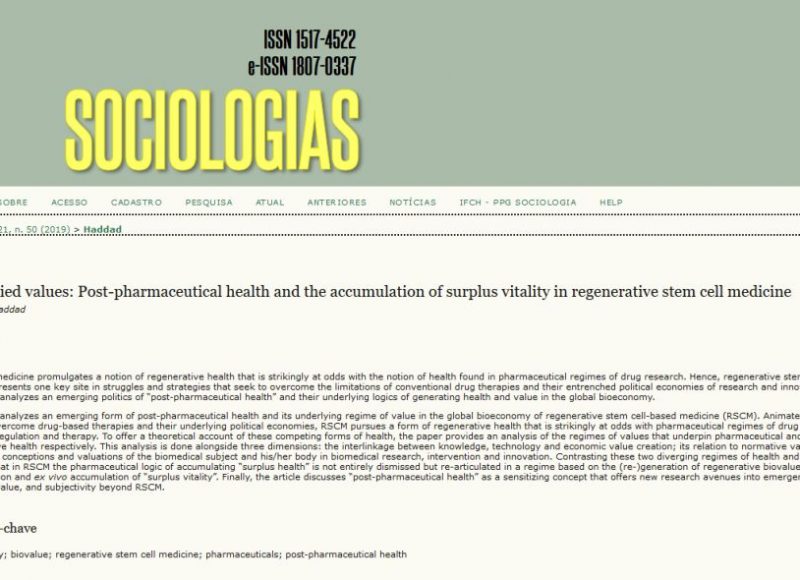
Embodied values: post-pharmaceutical health and the accumulation of surplus vitality in regenerative stem cell medicine
Embodied values: post-pharmaceutical health and the accumulation of surplus vitality in regenerative stem cell medicine
Haddad, Christian (2019): Embodied values: Post-pharmaceutical health and the accumulation of surplus vitality in regenerative stem cell medicine. In: Sociologias Vol. 21 (50), p. 48-79. (peer-reviewed)
Abstract
This paper analyzes an emerging form of post-pharmaceutical health and its
underlying regime of value in the global bioeconomy of regenerative stem cell-based medicine (RSCM). Animated by a vision to overcome drug-based therapies and their underlying political economies, RSCM pursues a form of regenerative health that is strikingly at odds with pharmaceutical regimes of drug research, regulation and therapy. To offer a theoretical account of these competing forms of health, the paper provides an analysis of the regimes of values that underpin pharmaceutical and regenerative health respectively. This analysis is done alongside three dimensions: the interlinkage between knowledge, technology and economic value creation; its relation to normative values and ethics; and conceptions and valuations of the biomedical subject and his/her body in biomedical research, intervention and innovation. Contrasting these two diverging regimes of health and value suggests that in RSCM the pharmaceutical logic of accumulating “surplus health” is not entirely dismissed but re-articulated in a regime based on the (re-)generation of regenerative biovalue through the extraction and ex vivo accumulation of “surplus vitality”. Finally, the article discusses “post-pharmaceutical health” as a sensitizing concept that offers new research avenues into emergent forms of health, value, and subjectivity beyond RSCM.
Keywords
Bioeconomy, Biovalue, Health regimes, Pharmaceuticals, Regenerative stem cell medicine, Regulatory pharmaceuticalization.
